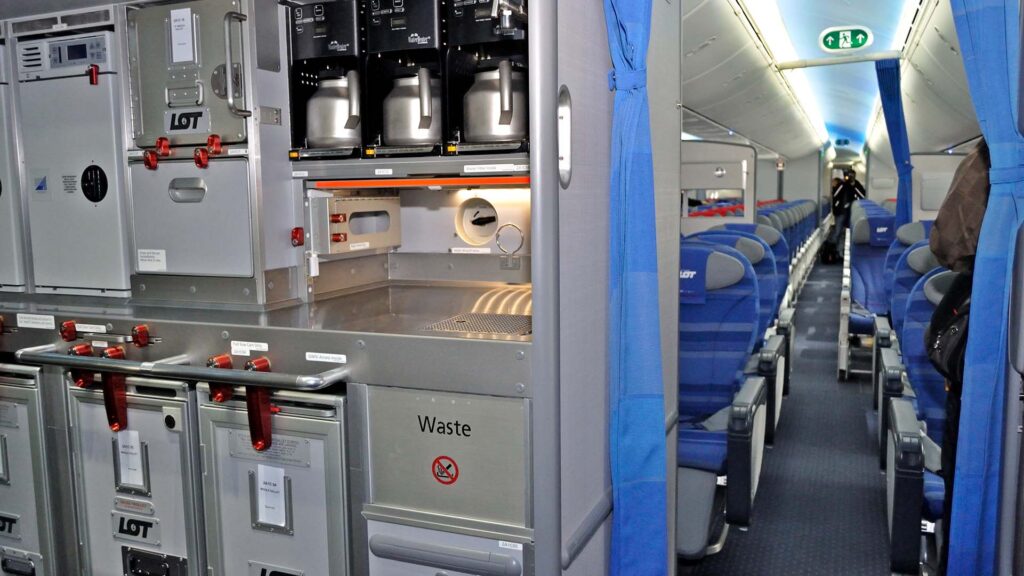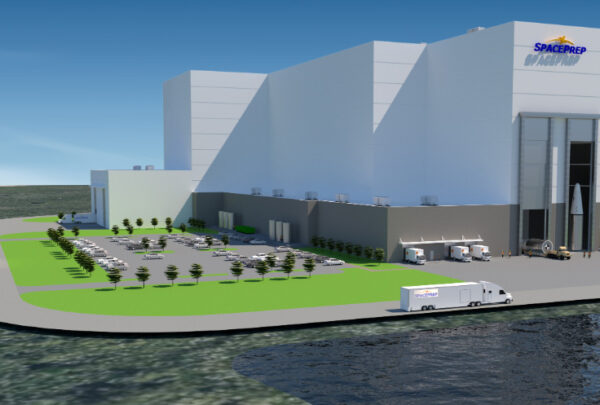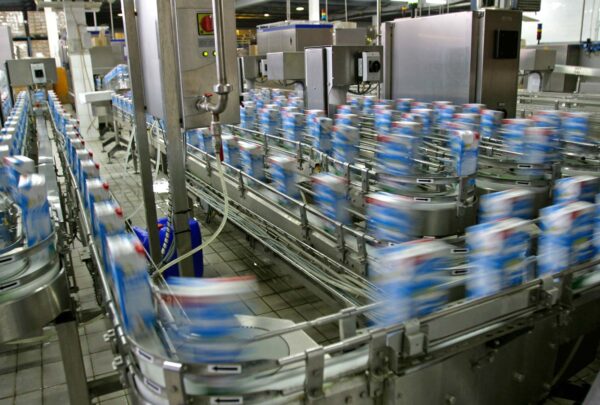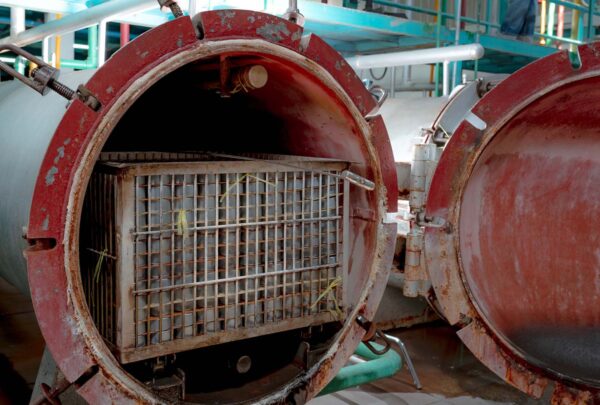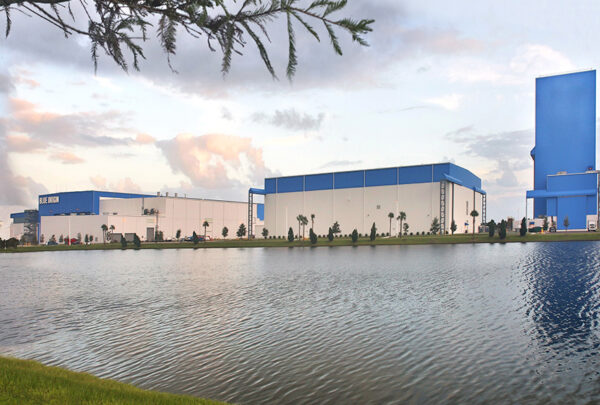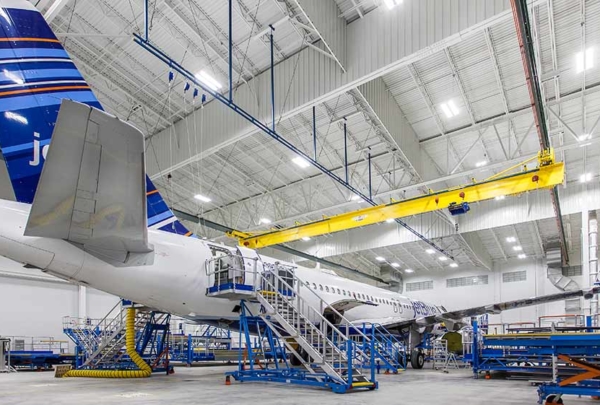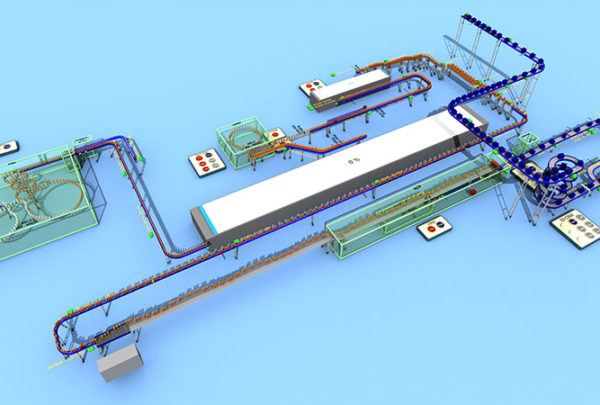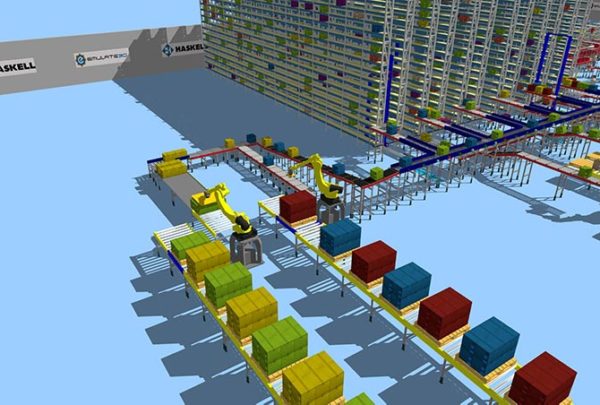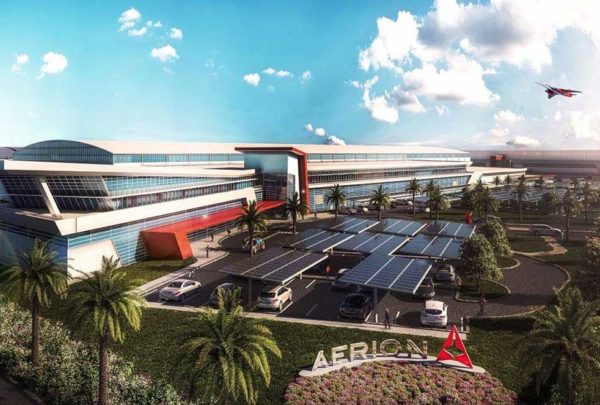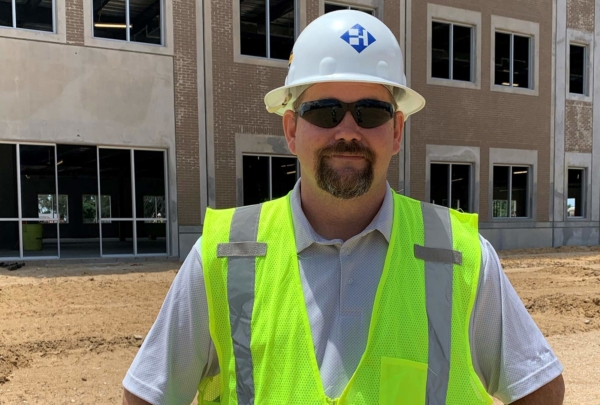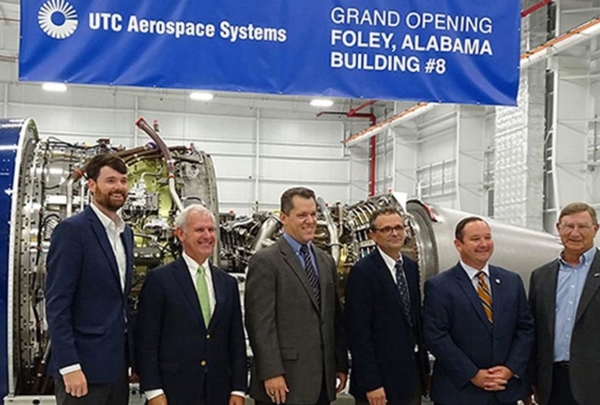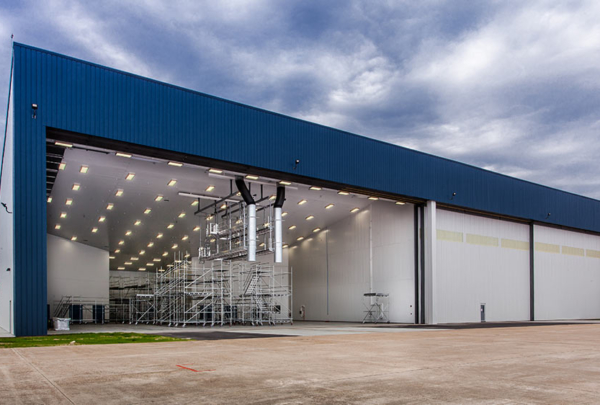When most air travelers see the drink cart rolling down the aisle, they think about what to order. Zary Peretz thinks of logistics.
“I’m an industrial engineer by training, so it’s my nature to view how we can do things better,” said Peretz, a Haskell System Analytics Project Analyst. “I look toward the drawers on the cart, and I see the trucks coming up outside my window and how it’s organized.”
Since 2018, Peretz and the Haskell Systems Analytics & Modeling team have analyzed United Airlines’ seven domestic catering hubs to ensure adequate square footage and the equipment required to service their flights through 2030 and beyond.
The engagement began in Newark, New Jersey, where the existing United Airlines Catering Operations Kitchen was displaced from its previous on-site location by the renovation and expansion of Newark Liberty International Airport. Before repurposing a nearby warehouse into a food-safe commercial kitchen, Haskell spent nearly 1,000 hours modeling and analyzing the operation.
Team members blended data from three different sources to build a demand model for the catering kitchens: Peak Flight Schedules, Galley Configuration Diagrams and Meal Schedules by Market. Once they had the demand-side detailed, they gathered information about capacity through direct system observations and interviews with key stakeholders at their catering operations.
Bringing together demand and capacity information into one model enabled the team to calculate the space needed during peak loads. Material handling, storage and flow were modeled to meet throughput and ergonomic requirements. To quantify space requirements throughout the facility, Haskell analyzed the complex variety of items served by United’s catering operations, which can, in some cases, be customized for each flight. The model assigned time and space to each step of the process and aggregated these requirements across United’s end-to-end process.
The model’s output showed how many operator workstations would be required to achieve current operations and growth models. In addition to modeling the facility’s output and space requirements, the Haskell team closely worked with United’s operations team to optimize the space and equipment for their new facility.
“It took that first work to realize how manual a process this was,” Peretz said. “It wasn’t standardized. It’s a lot easier to improve your efficiency than to change your footprint.”
The Systems Analytics group applied the knowledge they gained in Newark to inform their analysis of the other six catering facilities, located at Washington, D.C., Dulles; Chicago O’Hare, Los Angeles International, San Francisco International, Houston George Bush International and Denver International.
Peretz developed an Excel-based tool that considered 14 distinct areas of the overall process, from the macro (the hub’s kitchen size) to the micro (how many beverage kits were needed). Values for each variable could be entered to generate a qualitative understanding of capacity and the operational improvements necessary to achieve desired results.
As a result, United can now plan ahead to overcome constraints, revolutionizing its approach to budget, timetable and construction load at each catering hub.
“In the next three to 10 years, United expects a steep change in the number of flights it offers,” Peretz said. “They are investing in purchasing a number of new airplanes and want to know the forecast by the size of the planes and how to service them efficiently.”
Similar tools and analyses can and do yield capacity intelligence – and, ultimately, time and cost savings – in other production settings, whether food, beverage or beer, wine and spirits. It also applies to the healthcare industry evaluating space usage and patient experience. The new modeling is a living tool that can be updated as necessary and remains pertinent throughout the line’s lifecycle.
“I really like creative problem solving,” said Peretz, a 2017 double major graduate in Industrial and Systems Engineering and Business from Georgia Tech who works out of Haskell’s Atlanta office. “The real goal in my career is to push the team to do things that we haven’t done before.
“We’ve executed complex analytics projects for years. This was an analysis of a large-scale and very manual process. We bought into the expertise of the entire team. We didn’t touch a hammer, but getting the informed decisions for future consideration created a lot of real trust with the client.”
Contact Haskell’s System Analytics team for the deep, nuanced analysis it takes to leverage data to draw informed conclusions and support real-world decisions across a wide variety of industries.
